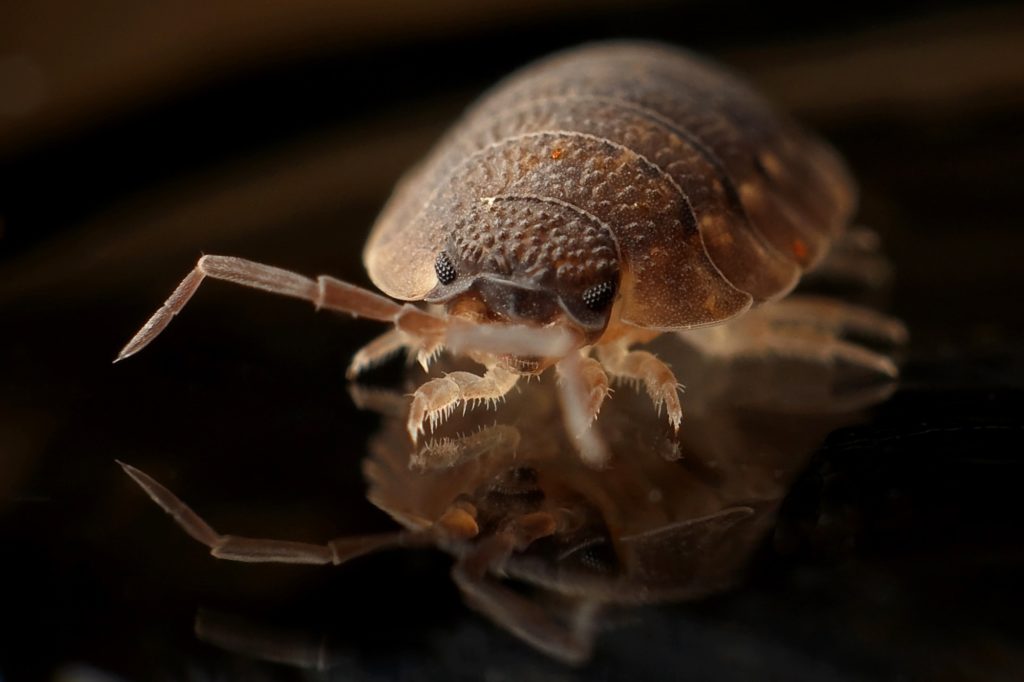While winter can provide a welcome respite from many pests, bedbugs, unfortunately, aren’t one of them. Although they can temporarily survive when the weather drops to below freezing, bed bugs tend to prefer the same temperature range as humans. Once they have established themselves in your home, they won’t be seasonally affected like other insects. Bedbugs can enter your home at any time of the year from outside, or be brought in on luggage, used furniture, and clothing. Read on for signs of a bed bug infestation, treatments, and preventative strategies.
Signs of Bed Bugs
While bed bugs can be difficult to see with the naked eye, these pests leave several telltale signs when they have made a home in your sheets. Bed bugs feed on blood and come out at night to bite. Their bites aren’t poisonous, but they cause raised itchy red welts. The bites are most commonly found on ankles or any skin that is not covered by clothing.
If you’re not sure if bites are the result of bedbugs or other insects like mosquitoes, examine your bedding for bloodstains, an unpleasant musty odor, shed skins, eggs, or the bugs themselves. Bedbugs can also live on bed frames, in closets, carpets, and electrical outlets, so be sure to thoroughly check the entire room.
Bed Bug Treatments
Once you’ve identified a bedbug infestation, you’ll need to take steps to kill the adult bugs and remove their eggs. It’s recommended that you call a professional pest control company as soon as you notice signs of bed bugs. In the meantime, there are steps you should take prior to the pest control company’s arrival.
First, wash all of your sheets, clothes, and bedding in hot water and dry on the hottest setting. Vacuum the bed, mattress, carpet, and surrounding areas. Clean up any clutter around your bed and in your closet, and do a few home repairs to fix peeling paint or cracks that bed bugs may be able to hide in. Once the professionals arrive, they will identify the source of the bedbugs and use safe chemicals to completely eliminate them.
Bed Bug Prevention
As the old adage goes, prevention is the best cure. There are a few simple precautions you can take to help prevent these unwelcome guests. Carefully examine any secondhand chairs, beds, or sofas you’re considering bringing home for signs of bed bugs. To keep bed bugs from infesting a mattress, purchase a clear plastic cover for your mattress and box spring. Bed bugs are also repelled by certain scents like peppermint, lavender, and tea tree oil, so try spraying essential oils on or around your bed to naturally keep pests away.
If you’re careful when traveling, you should be able to prevent bugs from hitching a ride back with you. Upon returning from a trip where you may have been exposed to bugs, wash clothes in hot water and vacuum out your suitcase.
Whether you need to treat an infestation in your home or you want to prevent one from happening, our experts at Exclusive Pest Control can help. Schedule a consultation today to keep your home bug-free this winter.





